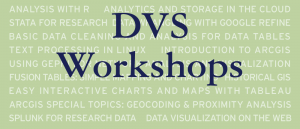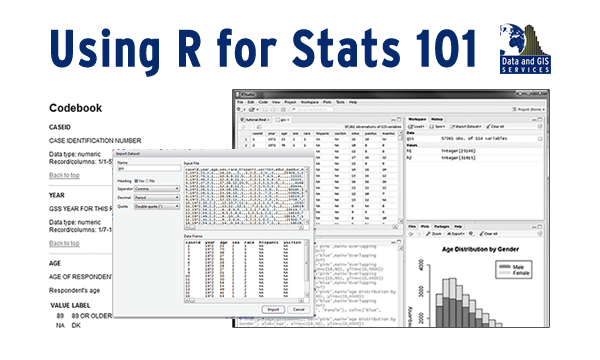As students and classes moved online in the spring of 2020, the Center for Data and Visualization Sciences realized that it was time to expand our existing email (askdata@duke.edu) and lab based consultation services to meet the data demands of online learning and remote projects. Six months and hundreds of online consultations later, we have developed a new appreciation for the online tools that allow us to partner with Duke researchers around the world. Whether you prefer to chat, zoom, or email, we hope to work with you on your next data question!
Chat
Ever had a quick question about how to visualize or manage your data, but weren’t sure where to get help? Having trouble figuring out how to get the data software to do what you need for class/research? CDVS offers roughly thirty hours of chat support each week. Data questions on chat cover our full range of data support. If we cannot resolve a question in the chat session, we will make a referral for a more extended consultation.
Zoom
We’re going to be honest…  we miss meeting Duke students and faculty in the Brandaleone Lab in the Edge and consulting on data problems! However, virtual data consultations over zoom have some advantages over an in-person data consultations at the library. With zoom features such as screen sharing, multiple participants, and chat, we can reach both individuals and project teams in a format where everyone can see the screen and sharing resource links is simple. As of October 1st, we have used zoom to consult on questions from creating figures in the R programming languages to advising Bass Connection teams on the best way to visualize their research. We are happy to schedule zoom consultations via email at: askdata@duke.edu.
we miss meeting Duke students and faculty in the Brandaleone Lab in the Edge and consulting on data problems! However, virtual data consultations over zoom have some advantages over an in-person data consultations at the library. With zoom features such as screen sharing, multiple participants, and chat, we can reach both individuals and project teams in a format where everyone can see the screen and sharing resource links is simple. As of October 1st, we have used zoom to consult on questions from creating figures in the R programming languages to advising Bass Connection teams on the best way to visualize their research. We are happy to schedule zoom consultations via email at: askdata@duke.edu.
Just askdata@duke.edu
Even with our new data chat service and video chat services, we are still delighted to advise on questions over email at askdata@duke.edu. As the days grow shorter this fall and project deadlines loom, we look forward to working with you to resolve your data challenges!







 How do you support 57,860 online students
How do you support 57,860 online students